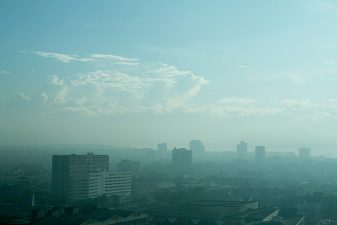 Making fuel subsidies a thing of the past may ‘half the global carbon target’, but politics is a real barrier to change in rich gulf nations
Making fuel subsidies a thing of the past may ‘half the global carbon target’, but politics is a real barrier to change in rich gulf nations
Phasing out subsidies for fossil fuels could get us half way to meeting our global carbon saving goal – that’s what the International Energy Agency chief economist Faith Birol believes. In a recent statement Birol said that IEA research shows a subsidies phase-out would avoid 750m tonnes of CO2 a year by 2015, potentially rising to 2.6 gigatonnes by 2035. That could provide half of the carbon savings needed to stop dangerous levels of climate change. However, it’s hard to see how Gulf nations would ever consider scrapping subsidies which effectively keep citizens content and compliant.
In a recent article, I discussed the role that politics plays in all aspects of life in the Middle East, including environmental issues. As well as the politics in the Israel-Palestine conflict, another issue that tends to be overlooked is the political role that fuel subsidies play in the Gulf nations of the Middle East.
Many commentators are happy to point out the huge inefficiencies created by fuel subsidies as well as the economic disadvantage it poses to renewables. However, a lot fewer are willing to point out that the main reason these subsidies continue despite falling oil prices is political. As many government have weak support from citizens they are not willing to put low energy costs at risk. The tribal bargain made between rulers and citizens means that citizens are kept comfortable and reasonably well-off in return for obedience and political docility.
According to IEA research, 37 governments spent $409bn on artificially lowering the price of fossil fuels in 2010. So it’s not just the rich nation Gulf nations of the Middle East who are trading low energy costs in return for political support. Critics have also noted that whilst the subsidies significantly boost oil and gas consumption, they disadvantage renewable energy technologies which received only $66bn of subsidies in the same year.
The explanation that these fuel subsidies help support those in poverty is also questionable. IEA data suggest that the poor receive a disproportionately small amount of the benefits. “Just 8% of the $409bn spent on fossil-fuel subsidies in 2010 went to the poorest 20% of the population,” Birol said to the Guardian. “It’s clear that other direct forms of welfare support would cost much less.”
So all in all these subsidies are political dubious, they don’t help the poorest, they hinder renewable energy take-up and are contributing a huge chunk of carbon that is leading to dangerous climate change. Remind me again why we have fossil fuel subsidies?
:: Guardian article and some really well-illustrated data here.
: Image via Britbob/flickr.
For more on politics in Middle East environmental issues see:
Israel and Palestine: The Place of Politics In the Mideast’s Environment
Subsidies Jeopardize Renewable Energy Project In Mideast
Solar Power In The West Bank – Green Progress or Bad Politics?



